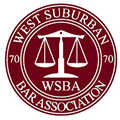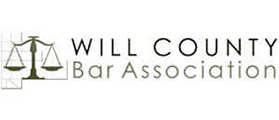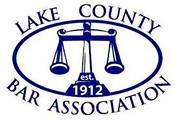1100 Lake Street, Suite 120, Oak Park, IL 60301
Oak Park | 708-848-3159
DuPage County | 630-852-9700 Mokena | 815-727-6144
Contact Our Firm
The use of the Internet or this form for communication with the firm or any individual member of the firm does not establish an attorney-client relationship. Confidential or time-sensitive information should not be sent through this form.
I have read and understand the Disclaimer and Privacy Policy.

Recent Blog Posts
Tips for Raising an Adopted Child Alongside Your Biological Children
 Many couples struggle with infertility and therefore turn to adoption to achieve their dream of having a family. In some cases, parents might already have biological children but choose to adopt another child as a way to expand their family, or a couple may conceive a child after they adopted one. No matter what the circumstances, there are many children who need good homes, and adoption is a wonderful way to provide them with a nurturing, safe place to grow up. Raising children is not easy, and bringing up an adopted child along with your biological children can be even more challenging.
Many couples struggle with infertility and therefore turn to adoption to achieve their dream of having a family. In some cases, parents might already have biological children but choose to adopt another child as a way to expand their family, or a couple may conceive a child after they adopted one. No matter what the circumstances, there are many children who need good homes, and adoption is a wonderful way to provide them with a nurturing, safe place to grow up. Raising children is not easy, and bringing up an adopted child along with your biological children can be even more challenging.
Guidelines for Blended Families
If you are raising both adopted and biological children, you may find it difficult to meet each child’s specific needs while also making them feel loved and part of the family unit. It is important for every child to have a safe, loving home. Here are some helpful hints to consider when you add to your family:
Tips for Going Through a Divorce in Middle Age
 People are living longer these days, and as their children leave the nest, the bond that holds a marriage together can dissipate. A divorce at any age can be nerve-wracking, but for those couples who are over 40, it can be very intimidating. For some people, the thought of being alone after a long marriage is overwhelming. If you have been together for many years, figuring out how to divide your marital assets can also be complicated. A common concern for a newly single person is whether or not he or she will have the financial resources needed for retirement. It is important to become acquainted with Illinois’ divorce laws to ensure that you can create a stable future.
People are living longer these days, and as their children leave the nest, the bond that holds a marriage together can dissipate. A divorce at any age can be nerve-wracking, but for those couples who are over 40, it can be very intimidating. For some people, the thought of being alone after a long marriage is overwhelming. If you have been together for many years, figuring out how to divide your marital assets can also be complicated. A common concern for a newly single person is whether or not he or she will have the financial resources needed for retirement. It is important to become acquainted with Illinois’ divorce laws to ensure that you can create a stable future.
Practical Advice
How Are Retirement Plans Divided in an Illinois Divorce?

Many people work for a long time in order to save for retirement. Others may have a pension, or they may invest in mutual funds or IRAs so they can live comfortably after they are done working. If a married couple decides to part ways, they may wonder what will happen to their assets in a divorce, including their retirement plans. Under Illinois law, marital assets are divided using “equitable distribution.” This means any assets acquired during the marriage will be divided fairly between the spouses, but not necessarily split in half. It is important to understand what you are legally entitled to in terms of retirement savings that may have originally been meant for both your and your spouse’s future.
Dividing Retirement Accounts and Pensions
Can Infidelity Affect My Illinois Divorce Proceedings?

For many couples, a betrayal of any kind can mean the end of the marriage. It is often hard to move past a mistake such as infidelity, even if it only took place one time. Trust can be irretrievably broken after adultery is committed, and for some people, that trust cannot be regained. Therefore, they decide to end their legal union. It is best to seek legal counsel once the decision has been made to divorce in order to understand what happens next when it comes to the division of property, child-related issues, spousal maintenance, and more.
Understanding Illinois Divorce Laws
What Can I Do if My Spouse Is Harassing Me During Our Divorce?

Going through a divorce can be hard on everyone involved, especially if one spouse did not see it coming or does not want to separate. In many cases, one spouse has made the decision to divorce in order to get out of an unhealthy relationship, whether it be due to abuse, addiction, infidelity, or other reasons. Unfortunately, there are cases in which one spouse may try to intimidate the other spouse into staying in the marriage. This can include harassment or stalking, either in person or by electronic means. If these actions make a person feel unsafe or uncomfortable, he or she has legal rights and options to stop this threatening behavior and finalize the divorce as smoothly and as quickly as possible.
Illinois Harassment and Stalking Laws
How Do Mental Health Issues Affect Divorce Proceedings in Illinois?

Mental health issues are prevalent in today’s society. According to the National Alliance on Mental Illness (NAMI), millions of Americans are affected by mental health conditions each year. A mental illness such as bipolar disorder, schizophrenia, or depression can be very challenging for a married couple and a family in general. In many cases, mental health issues can cause a couple to grow apart, and they may ultimately lead to divorce. Illinois is a no-fault divorce state, and irreconcilable differences is the only recognized legal basis for divorce. While the issue of mental illness is not a legal reason to file for divorce, it can significantly impact the divorce proceedings.
Orders of Protection
In some divorce cases, a person’s mental disorder could lead to dangerous or even violent behavior. If someone fears for their own safety or the safety of their child, then they should take immediate action. This can include obtaining the following orders of protection:
What Rights Do Grandparents Have in an Illinois Divorce?

In a divorce that involves children, not only is the couple breaking up, but the family unit is separating, too. This can affect the extended family, such as grandparents, aunts, uncles, and cousins. Grandparents in particular can be devastated by the news of a divorce, especially if they helped in caring for their grandchildren or saw them on a regular basis. Typically, allocation of parental responsibilities and parenting time are decided in court during the divorce proceedings. However, the special bond that exists between grandparents and their grandkids should not be overlooked during a divorce. Illinois law has several provisions that address the rights of grandparents depending on the situation.
How Do I Establish Paternity in Illinois?

When a baby is born to a married couple, there is usually no doubt that the husband is the father of that child. However, many couples have children outside of marriage, whether intentionally or not. If two unmarried people are in a romantic relationship and have a child together, the man is not automatically considered the legal father of the child even if the man and woman live together. The father’s name cannot be put on the birth certificate until paternity is established.
Legal Orders of Paternity
Paternity is defined under Illinois law as the legal relationship between a father and his child. It is important to know that paternity means the father is legally responsible for that child and is entitled to certain rights as a father. Paternity can be established legally by three different ways in Illinois:
What Are the Benefits of Adoption Classes and Support Groups?

Many people choose adoption for various reasons, such as a desire to expand their family, especially if they cannot have children of their own. However, adoption is a significant undertaking under any circumstances, and the process of adoption can be intimidating due to the emotional complications and legal intricacies involved. For many families, classes and support groups are great resources to help prepare the parents and the child for the transition. It is also helpful to talk to a law firm that has experience in adoptions to make sure you complete all the necessary legal steps.
Pre-Service Training Classes
Adoption establishes the adoptive parent as a child’s legal parent with all the rights and responsibilities of a child born to him or her. Sometimes, parents may choose to serve as foster parents first and eventually adopt the foster children at a later date. According to Illinois adoption laws, any child or any adult residing in an adoptive home for two years may be adopted, and family members are allowed to adopt any relative. The adoptive parent must be a resident of the state for at least six months; however, this requirement can sometimes be waived by the court, depending on the situation.
What Should I Do if Served With an Order of Protection in Illinois?

A divorce can be difficult for everyone involved, especially if abuse is one of the reasons for the end of the marriage. Orders of Protection (also known as restraining orders) can be common in some high-conflict divorce proceedings. This type of court order can prohibit the abuser from physical abuse, stalking, or contacting the victim for a specified length of time. An Order of Protection also creates a criminal record for the abuser and prohibits him or her from lawfully owning a firearm, even for work. Since there are different types of Orders of Protection, it is important to understand the ramifications of each. If you have been served with an Order of Protection, you should speak with an attorney as soon as possible to determine your legal options.























